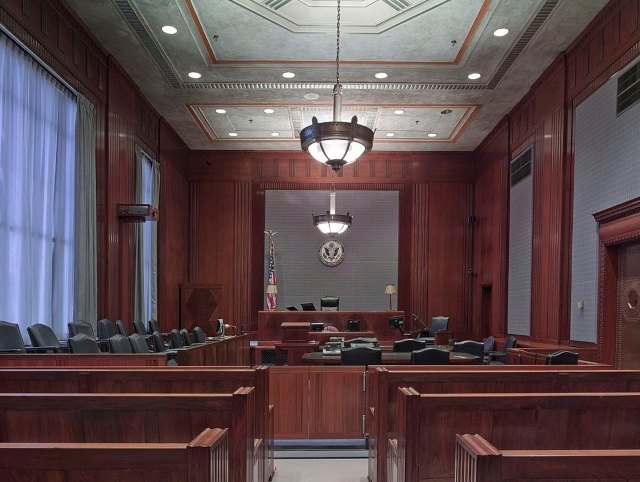Lawyer's Role in Declaring a Habeas Corpus Request Explained
Lawyer's Role in Declaring a Habeas Corpus Request Explained
Blog Article
The Complexities of Filing a Habeas Corpus Petition: A Guide for Looking For Post-Conviction Alleviation
Navigating the complexities of filing a habeas corpus application is an essential step for individuals looking for post-conviction relief. By discovering the ins and outs of this vital legal device, individuals can reveal possible avenues for tough convictions and eventually strive for fair results.
Comprehending Habeas Corpus Requests
When seeking to comprehend habeas corpus applications, it is essential to comprehend the essential lawful principles underlying this effective lawful solution (Attorney). Habeas corpus, a Latin term significance "you shall have the body," is a legal activity that allows individuals to seek remedy for illegal apprehension or imprisonment. This centuries-old writ functions as a safeguard against approximate state action by providing a system for people to test the legitimacy of their confinement
The keystone of a habeas corpus request is the assertion that the petitioner's constitutional rights have actually been broken, leading to their illegal apprehension. This can include claims of due procedure infractions, ineffective help of advice, newly discovered proof, and even administrative mistakes. Habeas corpus applications frequently arise in the context of criminal procedures, where individuals challenge the legality of their convictions or the conditions of their confinement.

Grounds for Filing
There are a number of legal grounds on which people might file a habeas corpus request, each functioning as a basis for testing the lawfulness of their detention. These grounds usually include constitutional offenses, inadequate assistance of advice, newly uncovered evidence, prosecutorial misconduct, and jurisdictional issues.
Constitutional violations form an usual basis for filing a habeas corpus application, incorporating insurance claims such as offenses of the right to a reasonable test, due process, or security against terrible and uncommon penalty. Inadequate help of advise insurance claims arise when a defendant's legal depiction during the trial or allure was so deficient that it threatens self-confidence in the end result. Newly uncovered proof, if confirmed to be material and most likely to change the end result of the case, can likewise call for habeas alleviation. Prosecutorial misbehavior entails underhanded or prohibited conduct by the prosecution that bias the offender's rights. Ultimately, jurisdictional defects might develop when the court that convicted the individual lacked the authority to do so, offering a basis for challenging the apprehension with a habeas corpus request.
Procedural Needs
Understanding the procedural demands for filing a habeas corpus request is necessary for making sure that the legal procedure is complied with precisely and efficiently. One essential step-by-step demand is the fatigue of state solutions. This means that before a government court can think about a habeas corpus request, the petitioner must have initially provided the insurance claims in state court and pursued all available opportunities of relief. Failure to wear down state remedies can result in the government court rejecting the petition.
In addition, there are stringent time frame for filing a habeas corpus application. The Antiterrorism and Effective Execution Act (AEDPA) enforces an one-year law of restrictions, beginning with the date on which the conviction became final. However, this deadline can be based on specific exemptions based upon details situations.
In addition, procedural needs mandate that a habeas corpus application have to consist of all relevant cases and supporting evidence. Insufficient or inadequate applications may be rejected or postponed, stressing the importance of complete prep work and adherence to step-by-step guidelines in looking for post-conviction alleviation with habeas corpus.
Challenging Convictions
Just how can people effectively challenge convictions through the procedure of filing a habeas corpus petition? Challenging convictions with a habeas corpus application involves presenting legal debates that show an infraction of civil liberties, procedural mistakes, or brand-new evidence that was not readily available throughout the original test. To succeed in testing a conviction, petitioners need to reveal that there was a fundamental issue in the criminal proceedings that led to a wrongful sentence or an unjustified sentence. This could consist of inadequate help of guidance, prosecutorial transgression, recently discovered proof of innocence, or offenses of the petitioner's civil liberties. Attorney.
When submitting a habeas corpus request to test a conviction, it is important to follow rigorous procedural needs, present engaging legal disagreements supported by proof, and verbalize just how the claimed errors influenced the fairness of the test. habeas corpus lawyers connecticut. Looking for the support of knowledgeable lawyers or companies concentrating on post-conviction alleviation can greatly enhance the opportunities of a successful end result when challenging sentences through a habeas corpus petition

Safeguarding Fair Outcomes
To accomplish fair results in challenging sentences with the filing of a habeas corpus application, individuals must thoroughly evaluate the lawful basis for their insurance claims and present engaging evidence sustaining their assertions. Securing reasonable outcomes in post-conviction alleviation proceedings calls for a complete understanding of the legal system, focus to detail, and critical planning. It is important to have a clear method in place, detailing the specific premises for the petition and exactly how today evidence straightens with legal debates.
Furthermore, people seeking post-conviction alleviation should stick to all step-by-step needs and due dates to ensure their request is considered by the court. Failure to fulfill these demands could lead to the termination of the application without the values being evaluated. Furthermore, involving the services of skilled lawyers, such as attorneys focusing on habeas corpus requests, can significantly enhance the possibilities of protecting reasonable end results.
Conclusion
In conclusion, the complexities of submitting a habeas corpus application for looking for post-conviction alleviation entail recognizing the grounds for filing, meeting procedural requirements, challenging convictions, and securing fair results (top federal habeas corpus attorneys in ohio). It is essential to meticulously navigate the lawful process to make certain the finest chance of success in seeking alleviation through this opportunity. Understanding the complexities of habeas corpus applications is vital for people seeking read here to test their sentences and obtain justice
Report this page